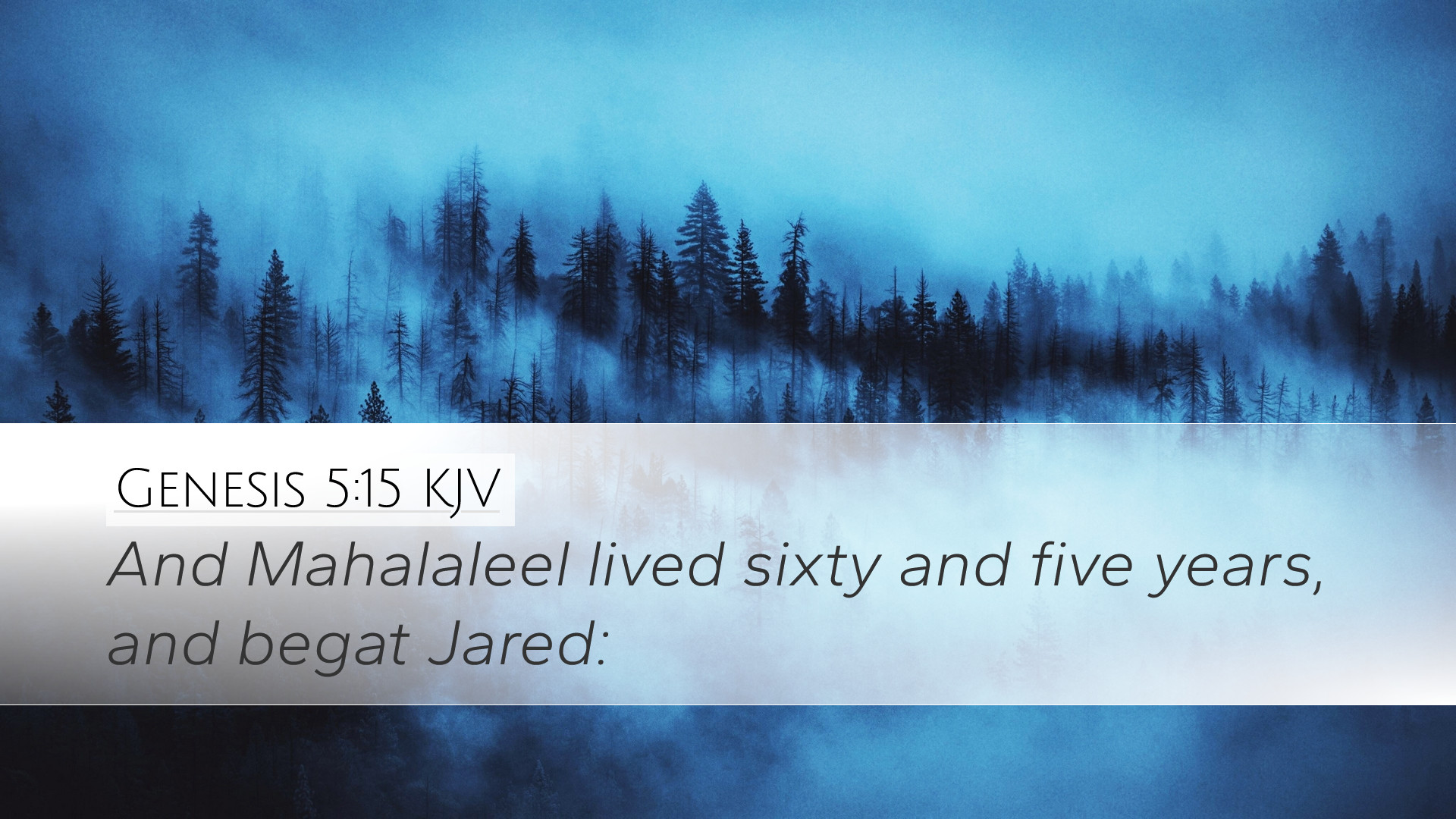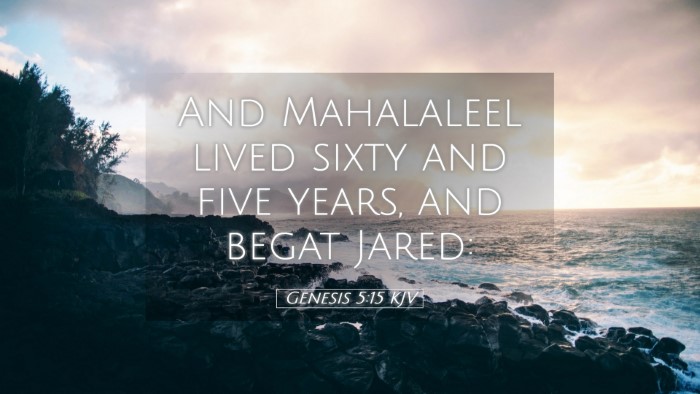Commentary on Genesis 5:15
Verse Introduction: Genesis 5:15 encapsulates a genealogical entry within the broader narrative of the Book of Genesis. This verse focuses on the lineage of Adam through his descendant Mahalalel, underscoring the continuity of God's creation and human history.
Text of Genesis 5:15
"And Mahalalel lived sixty and five years, and begat Jared:"
Overview of the Context
The fifth chapter of Genesis is a key passage in the creation narrative that presents the lineage from Adam to Noah. This chapter emphasizes the longevity of the patriarchs and their significance in the unfolding plan of God. The genealogy acts not just as a record but serves to reaffirm God's promise and providence through successive generations.
Insights from Commentaries
Matthew Henry's Commentary
Matthew Henry notes the importance of Mahalalel as part of the generational lineage from Adam. The name Mahalalel itself is significant, interpreted as "praise of God," reflecting the overarching theme of the chapter. Henry emphasizes that the longevity of Mahalalel, living 65 years before fathering Jared, illustrates God's providential control over creation and the unfolding of His plan through time.
Albert Barnes' Commentary
In his exposition, Albert Barnes highlights the profound significance of the ages given in this genealogy. He comments on the precision of the ages and the importance of Mahalalel as a link to the following generations. Barnes points out that Mahalalel's name being related to "the praise of God" may reflect a life lived in acknowledgment of God's faithfulness. The age of 65 years signifies a maturity at the time of fathering Jared, which might symbolize spiritual readiness to lead the family in godliness.
Adam Clarke's Commentary
Adam Clarke offers a detailed examination of the names in the lineage. He points out that Mahalalel's name means “the blessed God” and posits that this reflects the knowledge and recognition of God's character during this epoch. Clarke emphasizes the value of the generations, not merely as historical records but as testimonies of faith in God’s covenant. He digs deeper into the social and theological implications that each ancestor contributed to the lineage leading to Noah.
Theological Reflections
This verse, while succinct, encapsulates significant theological themes central to the Pentateuch: faithfulness, the importance of godly lineage, and the foretelling of God's plan for humanity through covenantal relationships.
- The Faithfulness of God: Mahalalel's lineage is a testimony to God's enduring promise to Adam, particularly concerning the preservation of a righteous remnant.
- Righteous Legacy: The repetition of "begat" emphasizes familial responsibility in spiritual upbringing and the importance of lineage in covenant theology.
- Significance of Names: The meanings of names in this genealogy serve as reminders of God’s attributes and encourage believers to live lives that honor and praise God.
Practical Applications
Genesis 5:15 encourages pastors, students, and theologians to ponder the generational impact of faithfulness. It serves as a reminder of the responsibility to nurture faith within families and communities.
- Spiritual Leadership: As Mahalalel fathered Jared at a mature age, leaders today are called to prepare themselves spiritually before taking on family responsibilities.
- Historical Significance: Understanding genealogies aids believers in recognizing the historical context of their faith and the significance of each generation's contributions.
- Living as a Legacy: Emphasizing the importance of living a life that reflects God’s praise, believers are encouraged to be mindful of their legacy and its impact on future generations.
Conclusion
Mahalalel's brief mention within Genesis 5:15 reflects a deep tapestry of theological significance. The cumulative insights from public domain commentaries not only enhance understanding of this specific verse but also encapsulate foundational truths about God’s faithfulness, the importance of legacy, and the calling of believers to live lives that reflect the praise of God.


